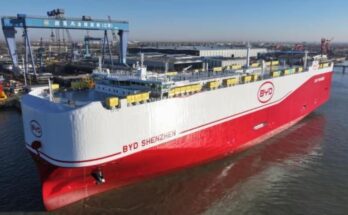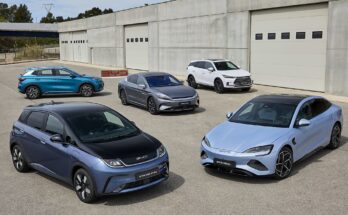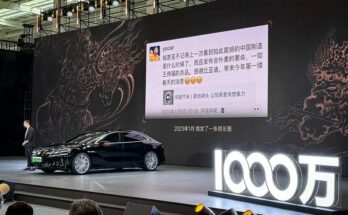China’s electric vehicle maker BYD is growing on sales at such an astounding pace that it is closing on to become the top carmaker in China.
Related: BYD Becomes the Third Most Valuable Automaker Globally
BYD sales increased by almost 257% year-on-year in May to 113,768 units as China’s shift away from combustion engine vehicles accelerated. That was despite swingeing Covid lockdowns that caused substantial supply chain constraints across the country. By comparison, FAW-Volkswagen (which is currently the largest car maker in China as per sales volume) sold 150,009 cars, data compiled by the China Passenger Car Association (CPCA) showed. May 2022 saw sales of new energy vehicles in Chinese market soared by more than 91% year on year.
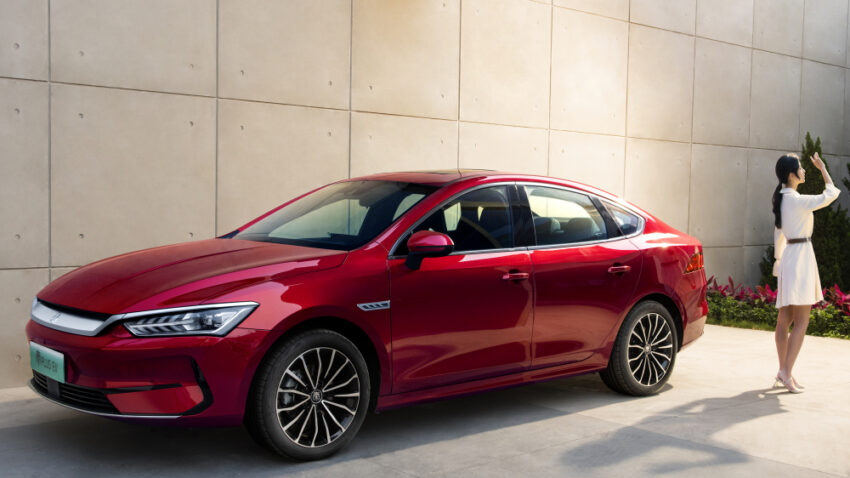
BYD’s sales surged almost 350% to more than half a million during the first 5 months, more than its top four EV rivals – GAIC-GM-Wuling, Tesla, Chery, and GAIC – combined.
Related: Prince William and Catherine Middleton in BYD
BYD also did well in major vehicle categories with the Qin, an entry-level electric sedan, pipping popular ICE and hybrid models like Honda’s Accord and Toyota’s Camry and Corolla to take 4th place in the list of the top 10 bestselling electric and ICE cars between January and May 2022. BYD Song dominated the list of top 10 SUVs of all types, outselling Tesla’s Model Y in the same period.
BYD Retired ICE Cars
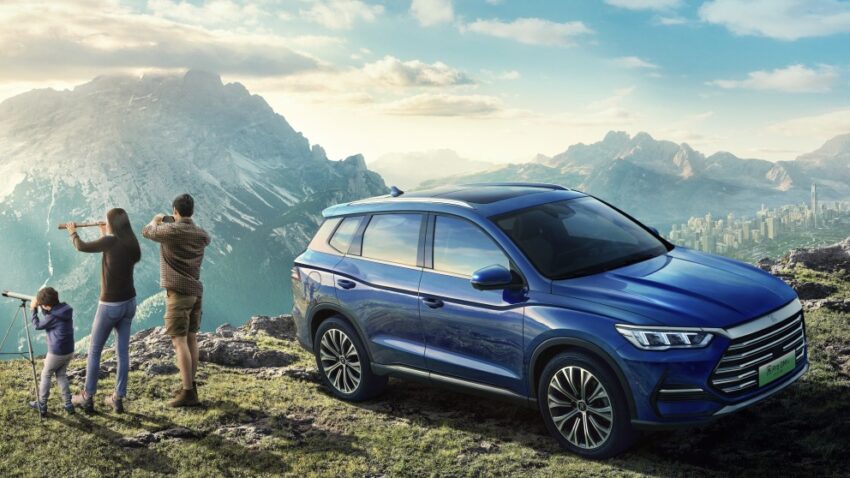
While legacy car makers are still burdened with the transition from internal combustion engines to batteries, BYD is benefiting from its singular focus on EVs. In April 2022, the company officially retired its ICE product lineup as the market share for ICE cars is already shrinking in China.
Related: BYD Jumps Ahead of Tesla in Battery Metal Push
Furthermore, according to analysts BYD has withstood the production disruptions due to Covid lockdowns better than its rivals because it can ride on its supply chain. BYD, which started making EVs in the early 2000s, has its production base in southern China’s Guangdong province and makes its own batteries. That helped it ride out the lockdowns in Shanghai that hobbled many of its competitors, including Tesla, Nio and Li Auto in April and May as supplies of batteries and other parts dried up and prices spiralled.

A computer animation professional with over 23 years of industry experience having served in leading organizations, TV channels & production facilities in Pakistan. An avid car enthusiast and petrolhead with an affection to deliver quality content to help shape opinions. Formerly written for PakWheels as well as major publications including Dawn. Founder of CarSpiritPK.com

